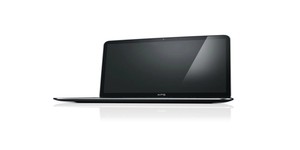Shipment figures gathered by IDC and Gartner show little sign of recovery in the global market for traditional PCs, although the US is showing early signs of stability and even minor growth.
The market for traditional desktops and laptops has been in for a tough few years. The explosion of interest in low-cost tablet devices has been directly named as a contributing factor, coupled with slower than hoped for uptime at the launch of Windows 8. In April this year, industry watcher IDC reported the biggest drop in shipments since its records began in 1994.
According to Gartner's most recent quarterly report, the market dropped 8.6 per cent year-on-year overall - an improvement on the 10.9 per cent drop it recorded last quarter. 'The third quarter is often referred to as the 'back-to-school' quarter for PC sales, and sales this quarter dropped to their lowest volume since 2008,' warned Mikako Kitagawa, Gartner principal analyst.
'Consumers' shift from PCs to tablets for daily content consumption continued to decrease the installed base of PCs both in mature as well as in emerging markets. A greater availability of inexpensive Android tablets attracted first-time consumers in emerging markets, and as supplementary devices in mature markets.'
For some, however, the figures show the first signs of growth: Lenovo, HP, and Dell made up the top three companies in market share and enjoyed small increases year-on-year of 2.8 per cent, 1.5 per cent, and one per cent respectively. Others weren't so lucky: Acer and Asus both saw similar drops in their traditional PC shipments of 22.6 and 22.5 per cent respectively.
Broken down globally, it's interesting to see where the market is growing and shrinking: the US market grew 3.5 per cent year-on-year overall by Gartner's counting, while here in Europe, the Middle East and Africa (EMEA) shipments dropped a whopping 13.7 per cent.
Rival market tracker IDC's figures vary slightly from those gathered by Gartner, but still show some improvement: according to IDC, worldwide shipments shrank 7.5 per cent year-on-year compared with a forecasted 9.5 per cent decline. That wasn't enough to cheer the analysts, however: 'The third quarter was pretty close to forecast, which unfortunately doesn't reflect much improvement in the PC market, or potential for near-term growth,' claimed IDC's vice president of worldwide PC trackers Loren Loverde.
'Despite being a little ahead of forecast, and the work that's being done on new designs and integration of features like touch, the third quarter results suggest that there's still a high probability that we will see another decline in worldwide shipments in 2014.'
With signs of recovery in the US, however, it could be that the market will finally stabilise - news that will be welcomed by traditional PC makers who have failed to capitalise on the interest in more portable computing devices.
The market for traditional desktops and laptops has been in for a tough few years. The explosion of interest in low-cost tablet devices has been directly named as a contributing factor, coupled with slower than hoped for uptime at the launch of Windows 8. In April this year, industry watcher IDC reported the biggest drop in shipments since its records began in 1994.
According to Gartner's most recent quarterly report, the market dropped 8.6 per cent year-on-year overall - an improvement on the 10.9 per cent drop it recorded last quarter. 'The third quarter is often referred to as the 'back-to-school' quarter for PC sales, and sales this quarter dropped to their lowest volume since 2008,' warned Mikako Kitagawa, Gartner principal analyst.
'Consumers' shift from PCs to tablets for daily content consumption continued to decrease the installed base of PCs both in mature as well as in emerging markets. A greater availability of inexpensive Android tablets attracted first-time consumers in emerging markets, and as supplementary devices in mature markets.'
For some, however, the figures show the first signs of growth: Lenovo, HP, and Dell made up the top three companies in market share and enjoyed small increases year-on-year of 2.8 per cent, 1.5 per cent, and one per cent respectively. Others weren't so lucky: Acer and Asus both saw similar drops in their traditional PC shipments of 22.6 and 22.5 per cent respectively.
Broken down globally, it's interesting to see where the market is growing and shrinking: the US market grew 3.5 per cent year-on-year overall by Gartner's counting, while here in Europe, the Middle East and Africa (EMEA) shipments dropped a whopping 13.7 per cent.
Rival market tracker IDC's figures vary slightly from those gathered by Gartner, but still show some improvement: according to IDC, worldwide shipments shrank 7.5 per cent year-on-year compared with a forecasted 9.5 per cent decline. That wasn't enough to cheer the analysts, however: 'The third quarter was pretty close to forecast, which unfortunately doesn't reflect much improvement in the PC market, or potential for near-term growth,' claimed IDC's vice president of worldwide PC trackers Loren Loverde.
'Despite being a little ahead of forecast, and the work that's being done on new designs and integration of features like touch, the third quarter results suggest that there's still a high probability that we will see another decline in worldwide shipments in 2014.'
With signs of recovery in the US, however, it could be that the market will finally stabilise - news that will be welcomed by traditional PC makers who have failed to capitalise on the interest in more portable computing devices.

MSI MPG Velox 100R Chassis Review
October 14 2021 | 15:04









Want to comment? Please log in.